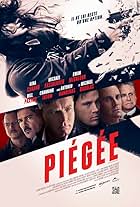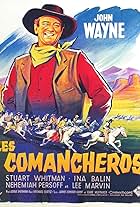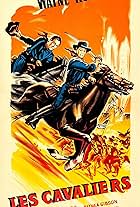
NewEnglandPat
A rejoint le oct. 2003
Badges4
Pour savoir comment gagner des badges, rendez-vous sur page d'aide sur les badges.
Évaluations541
Note de NewEnglandPat
Avis170
Note de NewEnglandPat
Humphrey Bogart's final film pulls no punches in its indictment of boxing as it chronicles the career of an unfortunate pugilist who is duped into a series of tank jobs that get him a coveted but undeserved title shot. Bogart, an unemployed press agent, is hired to promote and build up the pretender at the request of an unscrupulous manager, played by Rod Steiger. The film notes the brutality, mob violence, insensitive owners and trainers, bookies, fixes, hopelessness and despair of fighters who take frightful punishment in the ring while managers and promoters profit. A brief segment of the picture dwells on the misfortunes of an ex fighter who wound up homeless, penniless and addle-brained after a career in the ring. The movie is grim and cynical, with a hard-edged undercurrent throughout. Bogart and Steiger have the expected showdown at the end as their differences clash but not before the dark underbelly of boxing has been exposed. Budd Schulberg's novel is the basis for this film and old pro Bogart is wonderful and gets strong support from Steiger and several others, especially Harold Stone and Nehemiah Persoff. Jersey Joe Walcott, in a few brief scenes, has a nice turn as a sympathetic trainer.
Mari Sandoz' sympathetic account of the flight of the Northern Cheyennes from Oklahoma's Indian Territory to their historical homeland in Wyoming is the basis of John Ford's final western adventure. The usual emotional mistreatment of the Indians, with broken promises, lies, the disrespect shown to their chiefs, indifference to the tribe's well-being, lack of proper nourishment and education by their white custodians sets in motion their northward trek. The Cheyenne migration comes to the attention of the War Department in Washington with orders to stop the Indians and return them to their reservation. The film has several hit-and-run skirmishes, with the fighting prowess of the Cheyennes keeping the pursuing soldiers at bay. Richard Widmark, a cavalry officer and Carroll Baker, a Quaker who wants to educate the Cheyenne children, are sympathetic towards the Indians' plight, in stark contrast to Karl Malden's Russian martinet who imprisons the Indians at Fort Robinson and vows to send them back to the arid Oklahoma territory. The film's measured and deliberate pace is in keeping with the plodding progress of the tribe's move north. The Dodge City sequence, which features a comical poker game, is a pointless twenty minute detour from the film's narrative and adds nothing to the plot. The wide-screen cameras of William Clothier capture the beautiful scenery of Monument Valley, director Ford's favorite shooting location. Gilbert Roland, Ricardo Montalban and Dolores del Rio are excellent in various Cheyenne roles.
This story chronicles the lives of three men and a divorcée in the Nevada mountains. Clark Gable, in his final film, is a wandering, over-the-hill, middle-aged cowboy who corrals wild mustangs for slaughter with Eli Wallach, his buddy and an aviator whose plane locates and traps the horses for Gable's unerring lariats. Marilyn Monroe, always fetching, has rid herself of her husband and has come west to find meaning for her life. Montogomery Clift is a washed-up bronc and bull rider, and the four major characters come together, with each one beset by emotional traumas from their pasts. A major theme throughout the film is regret about disappointments, missed opportunities, failed family and personal relationships. The unhappy, wistful thread of the movie is mirrored by the stark black and white photography and the distant mountain vistas. The beauteous Monroe is coveted by the three men but seems partial to Gable, perhaps of his detached persona and laid-back approach to life. Wallach makes no secret of his obsession with Monroe and spares nothing in his attempt to win her for himself. Clift, along for the ride because of Gable's taunts about the disgrace of earning wages, brings his usual brooding quality to the film and seems disillusioned because he has no psychological anchor in his life. Thelma Ritter, always excellent in supporting roles, appears with Monroe early in the story but disappears midway through and is not seen again. Gable's stunt work with the wild horses is thrilling and is the film's highlight but may have cost him dearly with the wear and tear he took doing these scenes. The film is a fine coda to the careers of two of Hollywood's most storied personalities.
Données d’analyse
Note de NewEnglandPat
























